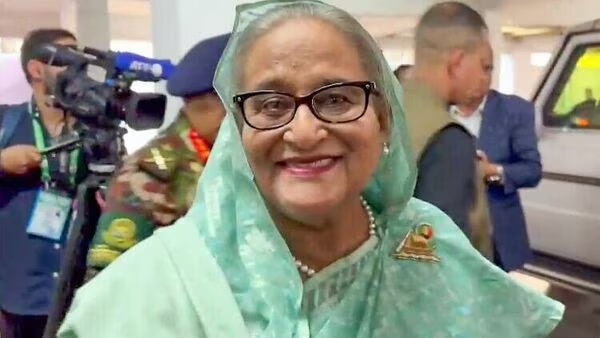
When Sheikh Hasina won, democracy lost
text_fieldsIn the New Year, the first of all elections determining the fate of current regimes in 60 countries worldwide took place in Bangladesh last Sunday. Sheikh Hasina, the daughter of the country's founding father Sheikh Mujibur Rahman, continues to be the Prime Minister for a fifth consecutive time with a substantial majority as expected. Her party, the Awami League, has won majority four times consecutively in the parliament. Sheikh Hasina attributes this victory to her maternal compassion in serving people. Bangladesh, having emerged as an independent nation from Pakistan, was considered to be one of the poorest countries in the world. At one point, US State secretary Henry Kissinger nicknamed the country as “bottomless basket.” Today, the neigbouring country has progressed, surpassing India in terms of its GDP, according to estimates. Production and export of textiles helped Bangladesh mitigate the gravity of poverty. The remittances of millions of expatriate Bangladeshis further spurred it. Prime Minister Hasina justifies her and her party's continuous success by citing these factors.
But the fact that only 41.8 percent of the 11 crore 96 lakh voters turned up at the polling booths challenges her claims greatly. The boycott of 16 opposition parties, including the main opposition party, the Bangla National Party, and the fact that the voter turnout in the elections fell below half cannot be dismissed lightly. BNP leader Begum Khaleda Zia, charged with anti-national activities and corruption, has been under house arrest for a long time. Nevertheless, her party was ready to participate in the elections alongside other opposition parties, on the condition of getting restored the Article VIII of the Constitution abrogated previously by the Hasina regime. And also on the condition that polls should be held under the supervision of a caretaker government after the current government stepped down. The fact that the said section was added to the constitution with the support of Awami Leaque should be remembered. The opposition’s allegation that the abrogation of the section by Awami Leaque after coming to power paving way for its continuous success rings true. Another example of undermining of democracy in the nation is hanging of leaders of Bangladesh Jamaat-e-Islami, which shared power with the BNP, including Motiur Rahman Nizami and jailing thousands of its activists alongside banning the party from contesting elections. But a popular uprising in 2023 demanding the release of Begum Khaleda Zia from house arrest, resignation of the government and free and fair polls under neutral government shocked the Awami League regime. More than 100,000 people participated in the rally in Dhaka alone in December, raising allegations of corruption and human rights violations against the Hasina administration. Hasina's iron-fisted crackdown on opposition using security forces helped her celebrate victory in 222 of 299 National Assembly seats, despite majority of voters boycotted the polls. Most of the other winners are Awami League dummies.
Those who call Hasina an iron lady like Indira Gandhi and Sri Lanka's Sirimao Bhandaranayake forget one fact. When both of them went astray, the popular will could express itself because of the democratic constitution and people’s determination to protect it at any cost. In Bangladesh, corporates in effect rule the economy and the media. When the Awami League regime shut down the Opposition party BNP’s mouthpiece Dainik Dinkal in February 2023, the only dissenting voice ceased to exit. Bangladesh is ranked 162 behind India in the latest list of Reporters Without Borders published annually reflecting press freedom in the world. Judiciary, on the other hand, has been slapped with title kangaroo courts. Considering all these facts, Ziaur Rahman, a leading political observer based in Dhaka, seems to be right in describing the Bangladesh polls a 'staged mockery' of democracy.

























